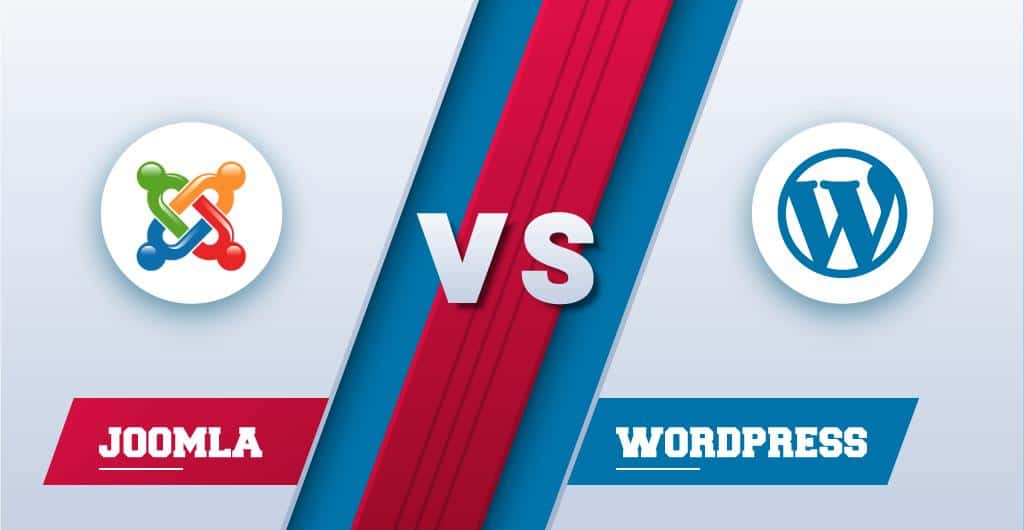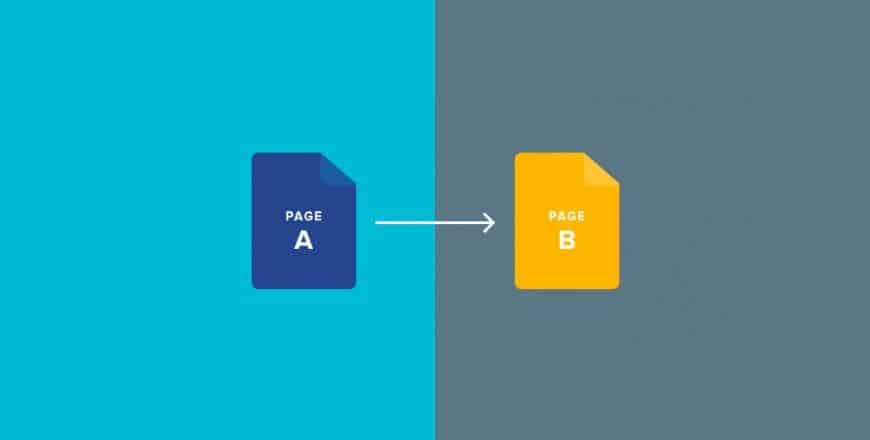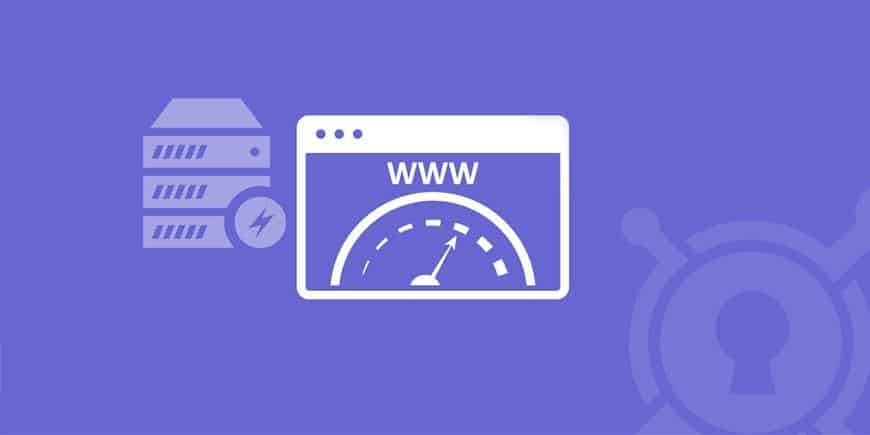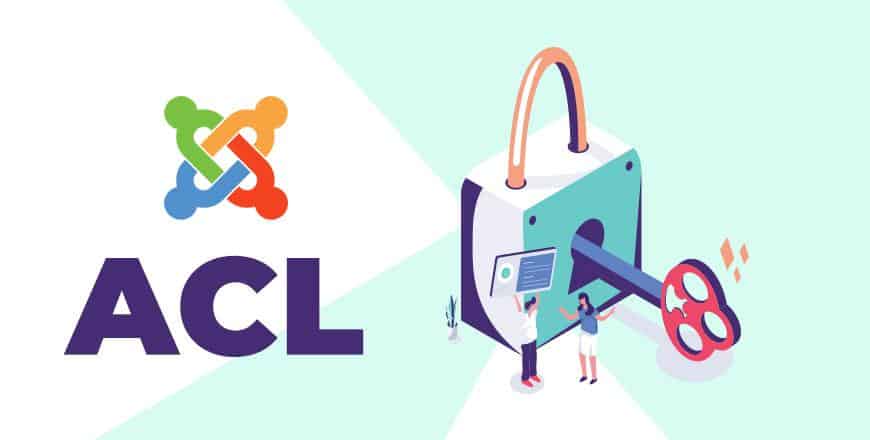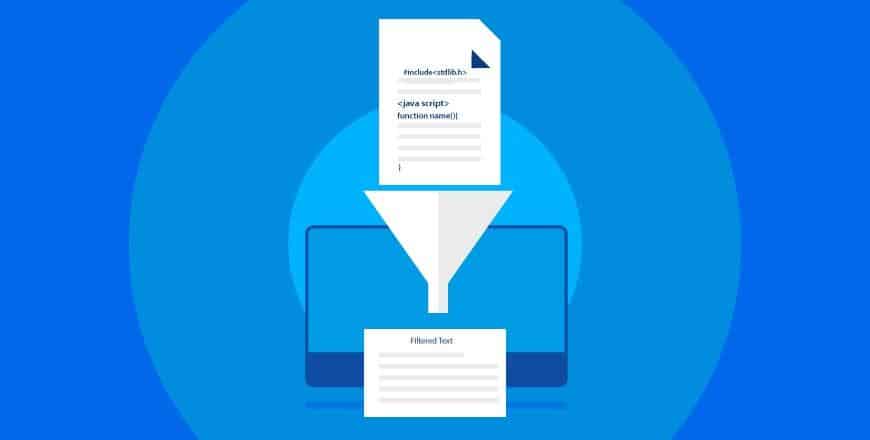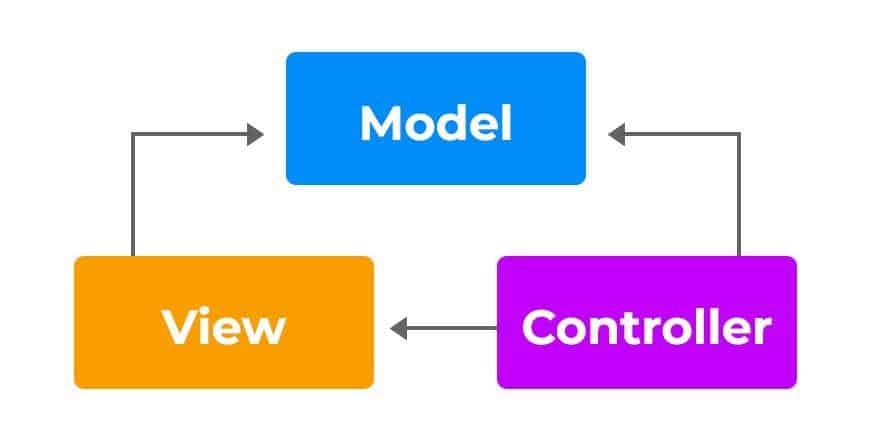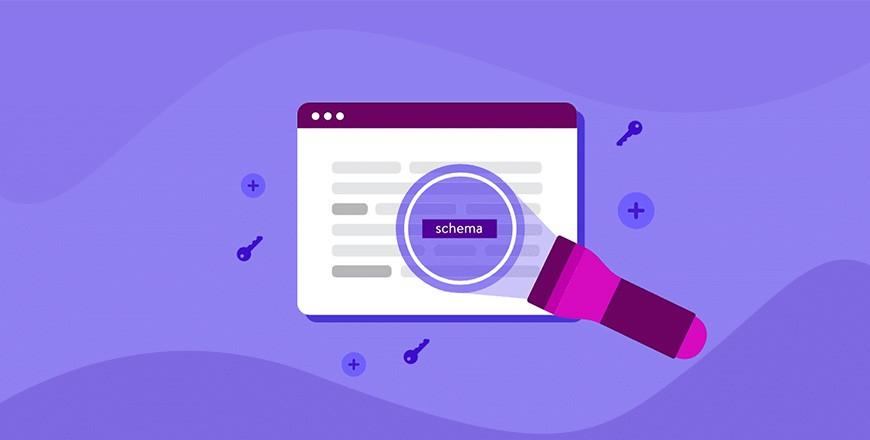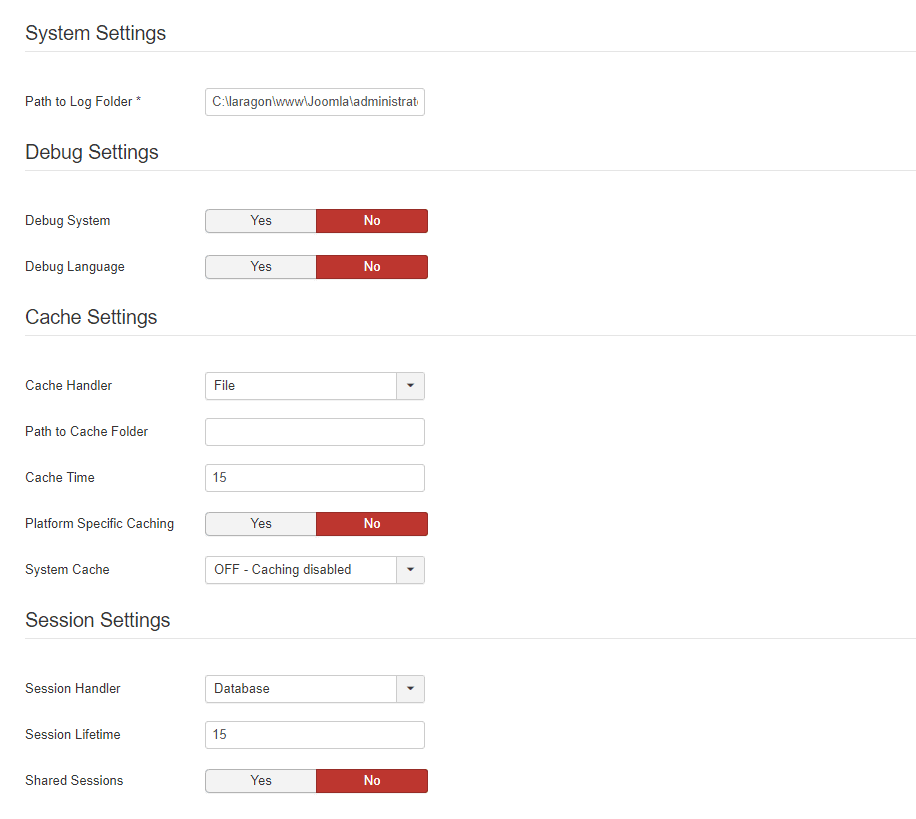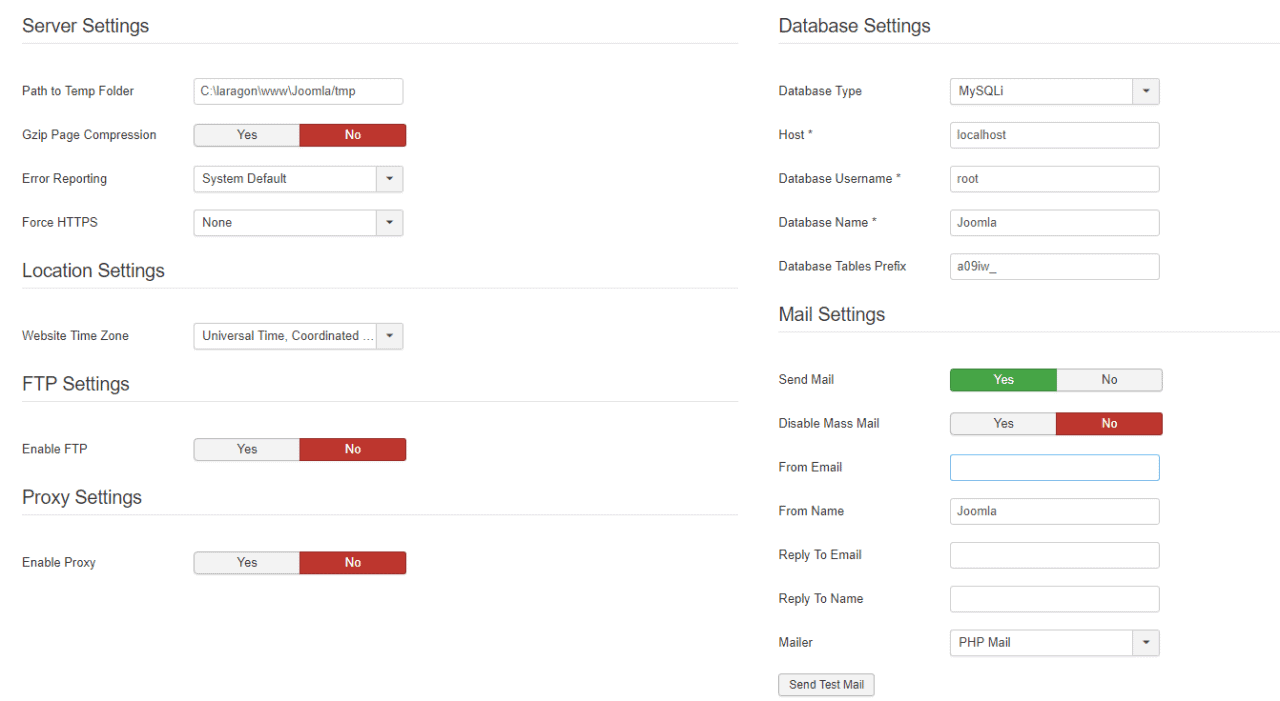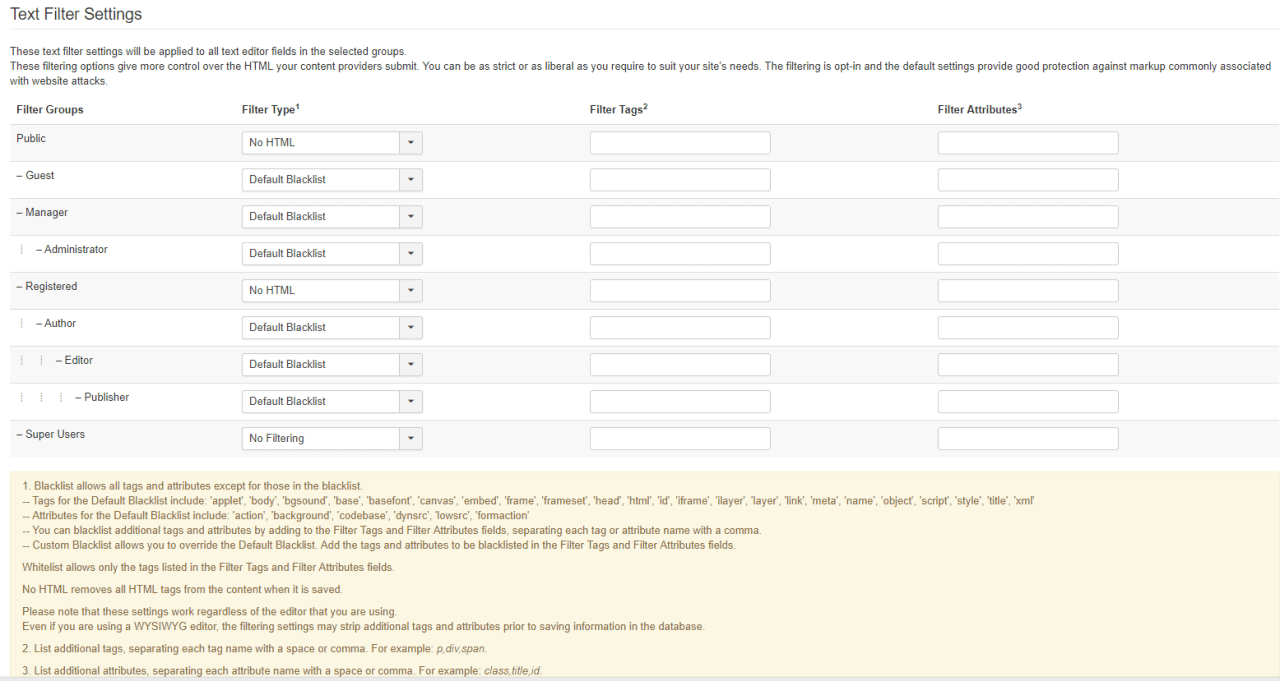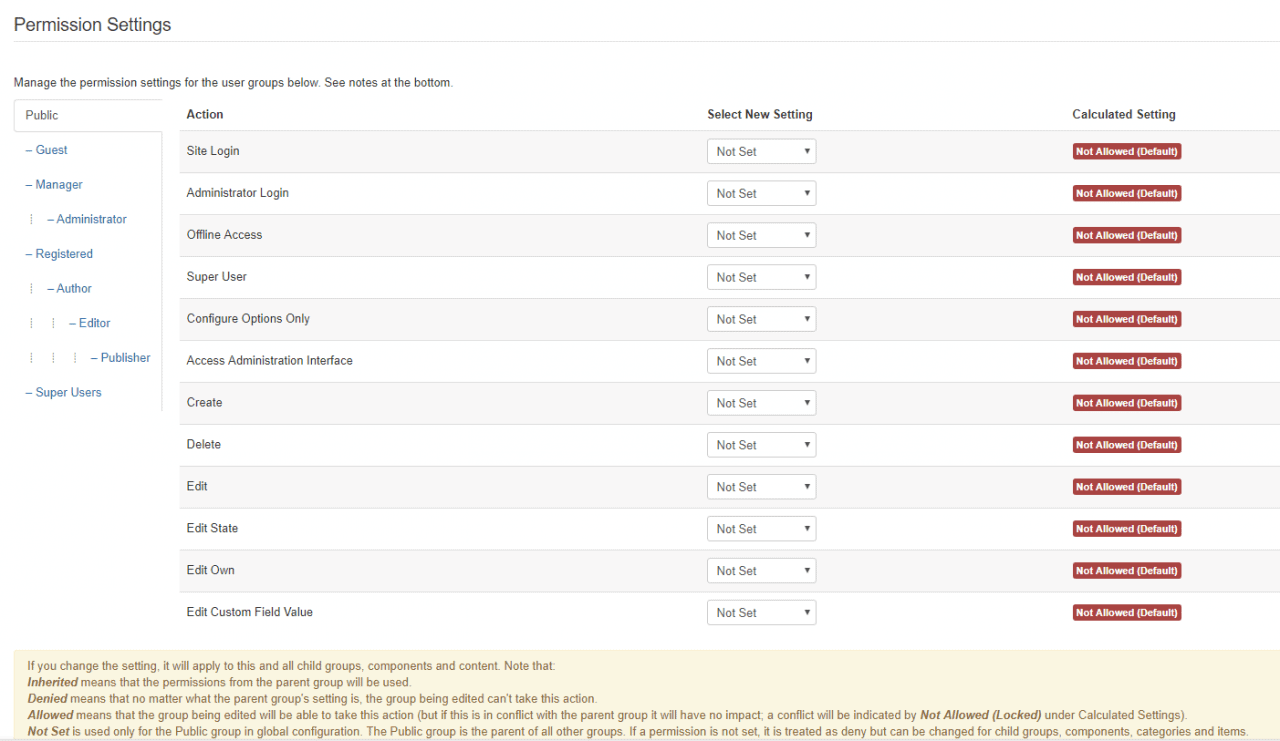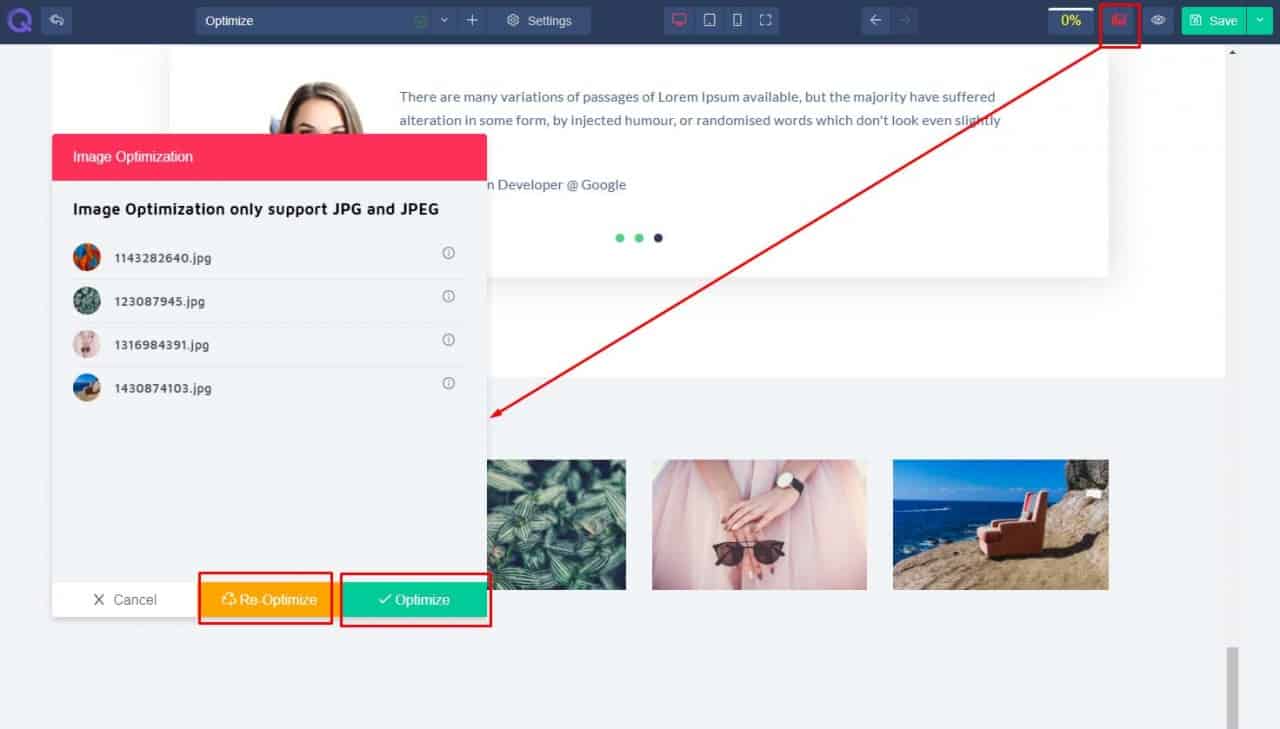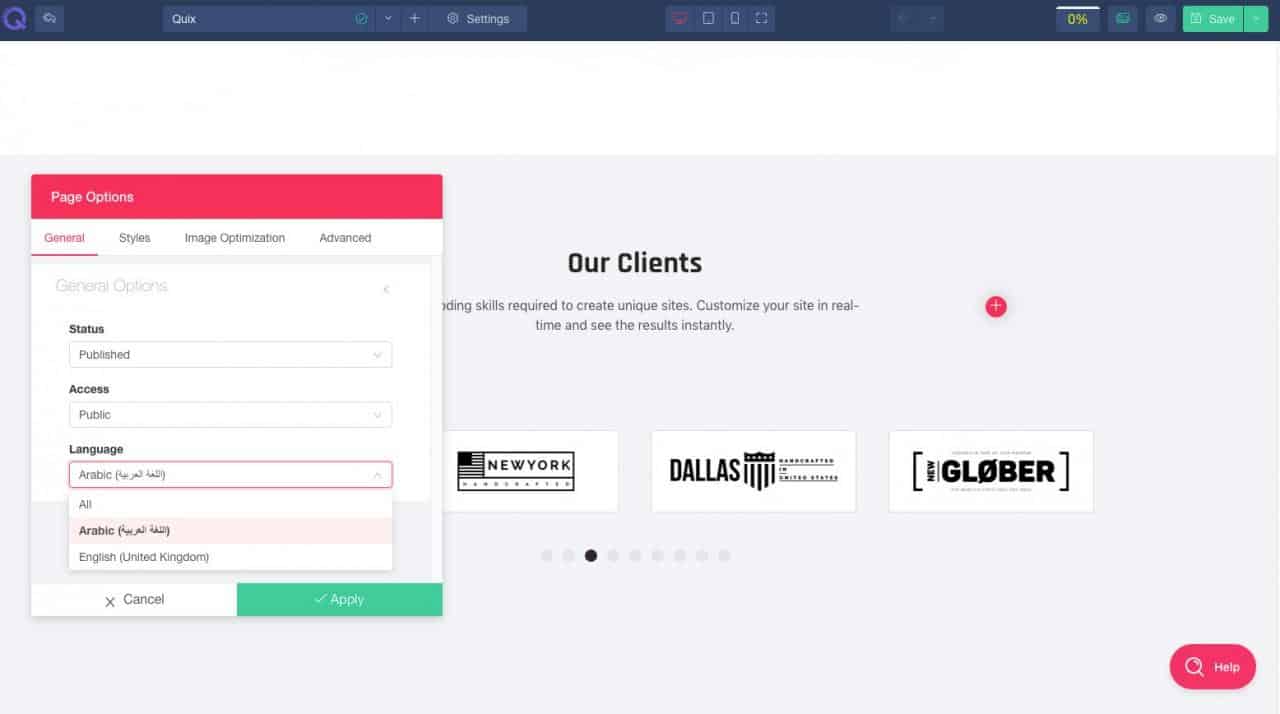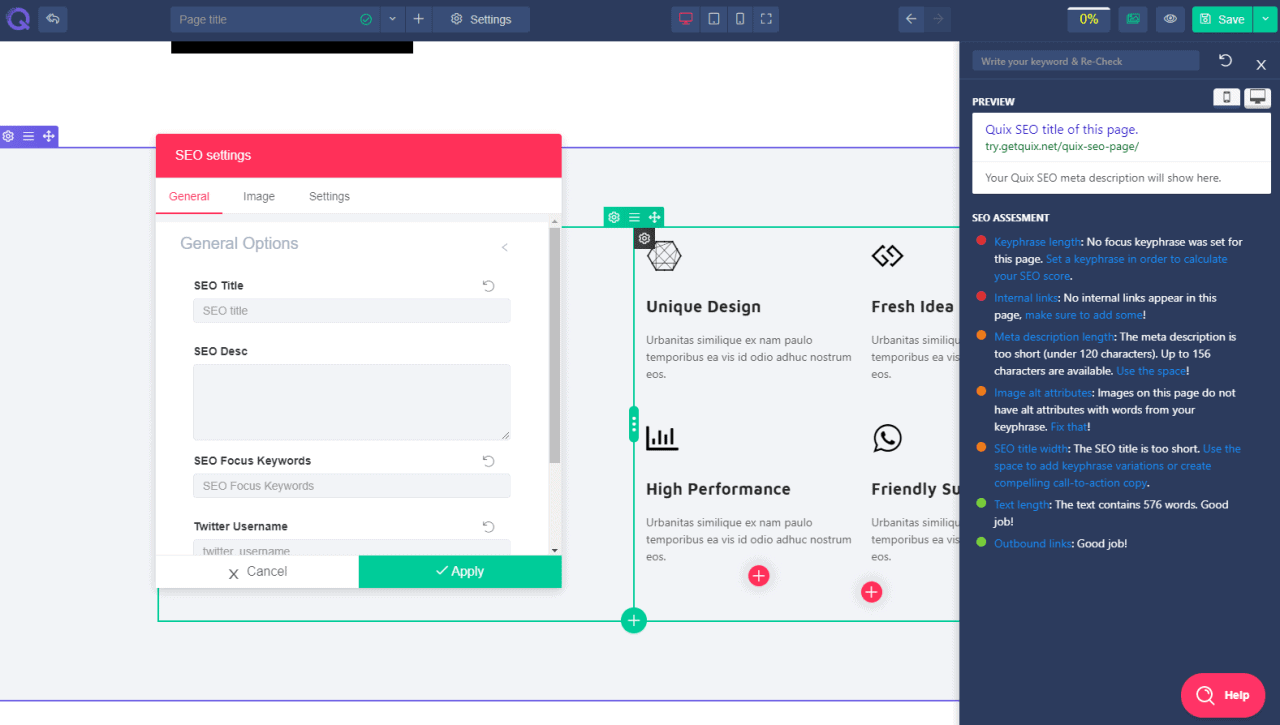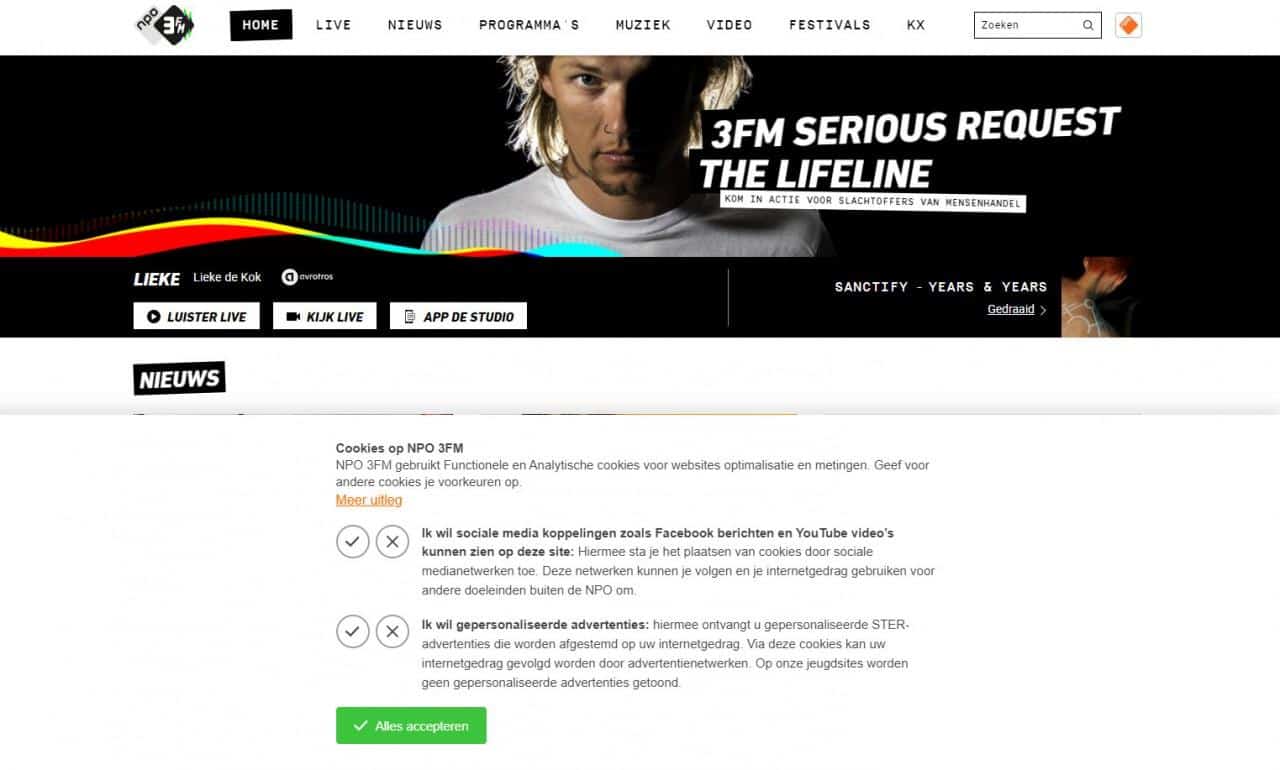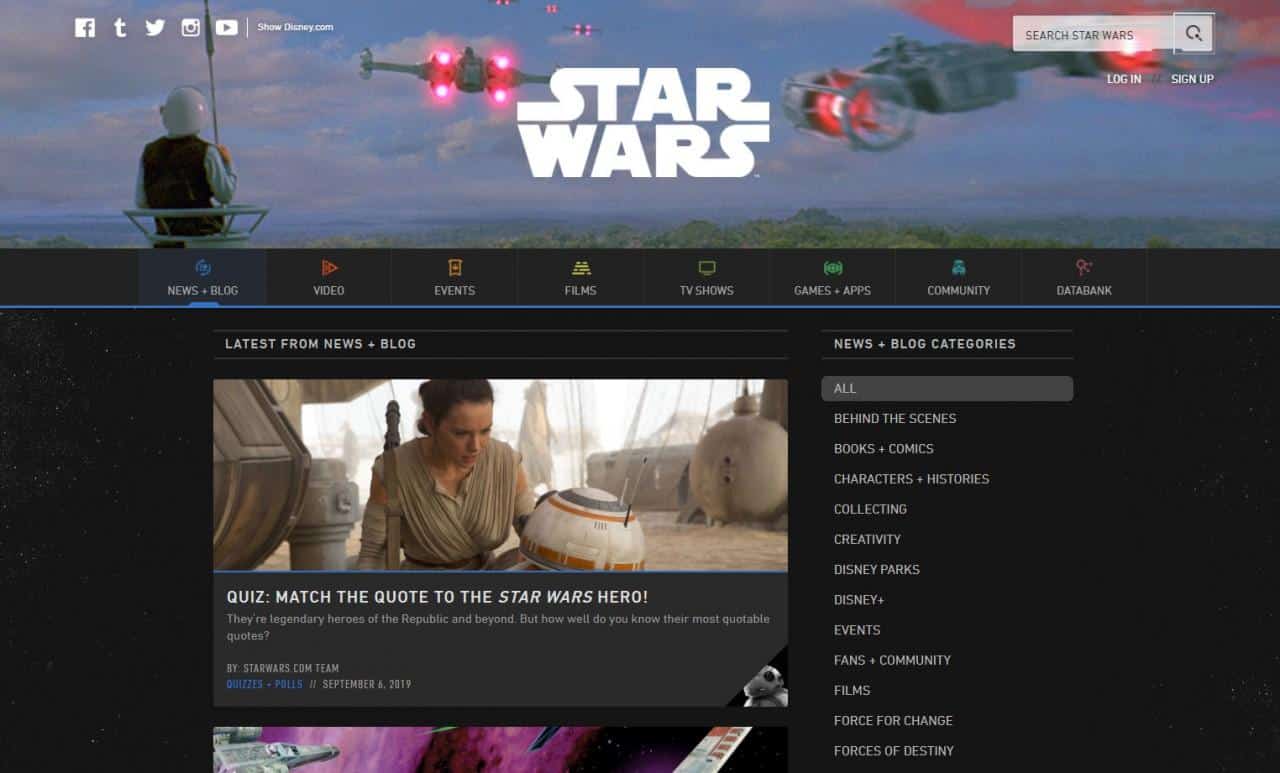Joomla vs WordPress; which one is better? As you know both of these are very popular CMS and it might be a tough choice for you to choose the rig...
Joomla vs WordPress; which one is better? As you know both of these are very popular CMS and it might be a tough choice for you to choose the right one. If you select the wrong one, i.e, vulnerable, costly, or too complex then you are sure to suffer in the long run.
That's because each CMS has its own extensions, modules, themes and customizations which your website runs and all of these are incompatible with other CMS. You can not move your entire site to another CMS.
There are a lot of people who just go with the popular CMS instead trying the better one. WordPress and Joomla both are fast, and they both serve you the same purpose but, Joomla provides more than WordPress. You cannot think of a WordPress site without dozens of plugins and investing your money.
However, Joomla comes with a lot of built-in features and functionalities that you cannot think without expensive plugins in WordPress. Joomla makes your life easier and saves both your time and money. In this post, I am going to show you a real-life data-driven study between Joomla and WordPress.
Let's dig through.
Joomla vs WordPress: Built-in Features and Functionalities
CMS is used to easily manage the content of your website. The more features & functionalities you get in your CMS, the less you have to rely on extension's. Joomla comes with a lot of built-in features and functionalities, to use those you just need to enable them.
Besides, extensions might exploit vulnerabilities or may slow down your site. Let's see the built-in features that Joomla provides.
Multilingual Functionality
There are numerous nations and languages in the world. If your website comes in only one language, then you are sure to lose very big traffic. A multilingual site holds twice the traffic than a single language base site and multilingual sites give you more conversion rates than single language-based sites.
Therefore your site needs to be in multi-language. Joomla comes with built-in multilingual functionality. You don't need to install or buy any additional extension to do it as Joomla offers it free. With 10 simple steps, you can make your site ready for any language.
On the contrary, there is no built-in multilingual functionality in it. You must use an additional plugin, and that could be either free or pro. A professional plugin like WPML will cost you, and other free plugins might not give you full functionality.
You get paid feature of WordPress at zero cost in Joomla.
Security
After launching any business on a website, the first concern that comes to anyone's mind is security. Without any security, anyone can hack your site, and all your hard work will go in vain. As Joomla is less popular than WordPress, it is also less vulnerable to attacks also.
Besides Joomla provides you built-in security features that save you from many attacks.
- SSL: In Joomla, you can enable SSL for your entire site without any additional help. With the help of SSL, your data will be protected, and Google will help you with a better search engine ranking.
- 2 Factor Authentication: Joomla comes with 2FA (two-factor authentication). Somehow, if anyone manages your password, he will still need a 2FA code to log in to your site. This 2FA is simple to configure in Joomla and costs nothing.
- Google ReCaptcha: Imagine someone is using a bot to attack your site, what you will do? Well, you can prevent this sort of attack with Google reCaptcha. Joomla comes with built-in reCaptcha, just enable it with few clicks and you are good to go.
- GDPR: GDPR is the new rules to give citizens more control over their data. It is needed to set cookies under users' consent to make sure that users' privacy is not compromised. With Joomla, you can make your site GDPR friendly without using any additional extensions. It's that easy.
There are no such built-in security functions in WordPress. The only way left is to install plugins, and if you are not sure about the plugin, it may make you a victim instead of saving you.
Custom Fields
Suppose you are creating an article for your website and suddenly you feel the need for a media field. But you don't have any, what you will do?
Well in Joomla, you can build your required custom field in the way you want. There are a total of 15 different types of custom fields that you can build in Joomla. It's very easy to create a custom field, and it will take only some simple steps.
However, in WordPress, you don't have any other option except installing a plugin. Installing plugins make an impact on your site, and they can even make your website slow.
Redirection System
You will never want to let your visitors go through a broken link. Broken links give a bad impression to your visitors, and you can lose your important conversion. This problem is solved with redirection. Just put a redirection link to the broken link, and it will redirect to your targeted page.
Joomla comes with built-in URL redirection. You can fix any broken links with redirection in Joomla. Joomla also comes with login page redirection so that you can redirect your users after logging in to your site. WordPress also can provide you with this service but with the help of a plugin.
If you try redirection plugins, you will find that 70% of them are not working properly. And of course, you cannot get your work done without buying any sort of plugins in WordPress.
Caching
Cache is a type of data that is stored temporarily to speed up the loading process. Caching improves a servers speed a lot. When you enable cache on your site, it will load a lot faster on your client's browser rather than a normal site.
Joomla comes with a built-in caching service. You won't need to take help from external extensions to do it. Just enable the caching option and then cache page and browser on demand.
Unfortunately, WordPress doesn't have such caching functionality. You must take the help of external plugins.
Debugging Feature
In the development process, you cannot build anything without any error. To solve the error, we take the help of different debuggers. Joomla comes with built-in debugger console in it, just activate the debugger from the global configuration and start debugging.
As a general user, you might not feel the need for a debugger console, but as you become an intermediate user or developer, you will know. Besides debugging console, you can also install any debugging extension you want.
WordPress doesn't come with such a console in its core. All you have to do is install additional 3rd party plugin, as there is no alternative.
100% Ads Ready
Ads are a good source of extra income. When you place ads on your website, you get paid. But to add any ads on your website your site should be ads ready or you should use plugin to run ads.
Joomla cms is 100% ads ready. With Joomla, you can place your ads on any position you want. There are dedicated places like left sidebar, right-sidebar, footer, etc in the options panel. Just choose ad position and place the add, you don't need to write a single line of code.
Unfortunately, there is no default ad running service in WordPress. To run ads, you have to install plugins.
Custom SMTP Functionality
Mail is an essential service for any kind of business. Without mail, you are sure to lose your valuable conversion, information, and money. When you create a website, you get default mailing service, but using that mail service might not fulfill your needs as your sent mails are sure to reach the spam box.
Therefore you need to take authorized mailing services like sendgrid, amazon ses, sparkpost, mandrill, etc. In WordPress, you must install a third-party plugin to use any of these mail services. So you have to find out one of the best SMTP plugins, then try it out.
You cannot be sure that the SMTP plugin you are using will definitely benefit you, as some of the plugins don't work properly. This becomes a big problem if you are new to WordPress.
Joomla comes with built-in SMTP service, which you can trust blindly. The best part of Joomla is you don't need to install any additional extension. Enable the mail setting and choose SMTP and you are good to go. Joomla SMTP save your time, money and also free from all sorts of vulnerabilities.
WordPress is nothing without its plugins, but you have to do the hard work and spend money to choose the best.
User Activity Log
Managing a website is not so easy, you have to take care of a lot of things. Multiple users can make multiple changes on your website. They can make good changes and also bad changes.
Therefore it is essential to log the changes that are made by a user or system admin. If anyone makes any unwanted changes, you will be able to know and revert it back by watching the log.
Joomla comes with a built-in user action log, so you don't need to worry about anything that goes wrong. You can log user IP addresses and every event including articles, banners, cache, categories, configuration manager, contacts, installer, media, menus, messaging, modules manager, news feed, plugins, redirects, tags, templates, users, etc.
Do you need anything else to log? I don't think so. If you want to do this in WordPress, you are going to need a plugin. Not a free one but pro as free will only allow you to log limited events.
Joomla vs WordPress: Unique Features and Functionalities
Joomla is not only a CMS like WordPress that only lets you build a site, it's more than that. It gives you better control over your site. There are a good number of unique features & functionalities that comes with Joomla. If you look for them in WordPress, you have to dig very deep and spend a good amount of money.
However, you get these unique features and functionalities in Joomla at free of cost.
ACL - Control Users in The Way You Want
Joomla ACL stands for Joomla Access Control Lists. It is one of the popular and powerful features that Joomla provides. With Joomla ACL admin can place individual users into specific user groups, which are assigned with different access control levels and assigned permissions. It allows the owner to control -
a. What a user can see on your Joomla website
With Joomla ACL, you can set specific user groups to see your page content, and others won't even find it. Posit you want to provide special discounts to your Gold user, therefore create a page with your discount offer and set the access to gold users. In this way only Gold users will see your discount page, others won't.
b. What a user can do on your Joomla website
Joomla ACL will allow you to control your user base. You can set specific permissions for specific people. Example - Superuser, Administrator, Guest, Public, etc.
By default, there is no ACL in WordPress. If you want to control your user base, then you must use additional plugin which may cost you money. However, you get this facility in Joomla by default and without any charges.
The interesting fact of Joomla is that, it comes with ACL function even in page builders. That means you can control over your page sections. You can make a section visible for a specific group of users, and others will see nothing.
That means you can run special sales and specific sections or parts of the website to your targeted users.
Text Filter - Filter Junks Out of Your Text
How would you feel if anyone uses abusive words against you? Or anyone tries to inject malicious codes into your site? You would definitely not want that.
If you turn on text filtering in Joomla, no one will be able to do that. All you have to do is enable text filtering and choose filtering type for user groups. There are a total of 5 types of filtering available in Joomla - default blacklist, custom blacklist, whitelist, no HTML, and no filtering.
Therefore you can create and modify your default blacklist and filter in the way you want with Joomla. There is no such filtering available in WordPress; therefore it is easy to inject malicious codes and hack. If you are using WordPress, you must rely on Plugins and spend a good amount of money.
SEO - Optimize Your Site Without Any Extension
What is the point of having a website that doesn't generate any conversion and sales? Would you like a website like that? Definitely no. To increase conversion and sales, your site needs to rank in search results. SEO helps you here to rank faster and reach people faster.
By default, Joomla comes with some SEO feature that allows you to create an SEO friendly website. In the global configuration of Joomla, you will find SEO settings, which covers a big part of the SEO of your website. Besides, you can set meta description, meta keywords, and image alt texts of every post.
It's the minimum SEO that a website requires. In WordPress, you will not find such feature without installing additional plugins.
In Joomla, you can even maintain the SEO when you are building your page. The Quix Joomla page builder allows you to do this as it comes with Quix Rank (SEO) feature. With it, you can optimize your page level and site level SEO by yourself.
MVC - Maintain Your Development Workflow
MVC is the abbreviation of Model, View and Controller. It is a software design pattern that is used in Joomla and because of this pattern, you can easily extend the functionality of an extension. Here you don't have to edit the core, and core functionalities will stay as it is.
Due to MVC pattern, your website maintenance becomes very much easier as the control, view and model are separate. For bringing any changes to front-end you have to write code in within view, writing code elsewhere will not work. In this way your whole development process remains organized, and any newcomer will easily understand your code.
WordPress doesn't follow MVC pattern. Therefore, you can call any function from anywhere. It's like a nuclear bomb in the hand of a child. You can destroy a whole WordPress site by writing some codes in function.php.
And therefore, WordPress is the only CMS that is most vulnerable than all other CMS's. You can write, call any functions from anywhere in WordPress. For these reasons sometimes it gets very much hard to work on others work.
Microdata - Make Your Website SEO Snippet Friendly
Every site has its importance, and with microdata, a search engine can easily understand the importance of your site's content. With microdata search engines like Google, Bing can easily access the extra information of your content such as names, dates, description, rating, etc.
With this additional data, the search engine can understand your data more clearly and often reward you with a higher ranking in search results. In Joomla, you can directly add this microdata with every content you publish; as a result, you stay ahead in the race of search result.
Unfortunately, WordPress doesn't allow you to set any microdata on your post. To add any additional data, you have to use schema plugins. Otherwise, you can't do it.
Template Management - Supercharge Your Templates
To easily build a website, there is no alternative than using a template. They are the shell of your website. Templates determine things like colors, fonts, menu styles, navigation controls, layout design, header footer, etc. It is more accurately described as a base on which your website's layout and appearance are formed.
You could take more benefit from a template if you got a powerful template manager like Joomla. Joomla template manager allows you to duplicate a whole template style and then use it on your different pages. For example, you need to show a different header for different users. Therefore you can duplicate the template and change the header then use it in another page for different users.
Not only header, but you can also change footer, menu, page design for different pages of one template. If you are a WordPress user, this might be a dream to you, but in Joomla it's real. Joomla gives you the freedom to use one template in a different form and without changing any core of the template.
In WordPress you don't get any facility like this, if you change any section of the theme, it will affect all pages. You won't be able to set different menus for different users or pages. However, you can do this with specific page builders.
Layout Override - Extend Your Extensions Functionality
Customizability is a huge thing that gives you the freedom to create something new in your own terms. Layout overriding is something like that, and it comes by default in Joomla. With layout override, you can change the functions of an extension without changing its core.
Seems a little bit confusing? Well in simple words you can add your preferred functionalities in an extension. It won't affect the extension at all. In this way, you can customize any extension with the help of layout overriding.
In WordPress, there is no such thing as layout overriding. You don't have the freedom to do whatever you want to do with a plugin. If you want any functionalities in a plugin, then you must ask the developer of the plugin.
Global Configuration - The Ultimate Settings Panel
In your website, the control should be in your hand. The more options you have in your CMS, the more easily you can control everything in your site. Every CMS comes with its own settings.
Joomla comes with most of the features, functionalities, and settings. In other cms, you got only the minimal settings. However, Joomla offers you in-depth settings so that you can do whatever you want in your site. Most of the configuration settings of Joomla are kept in one option - Global Configuration, and it's very unique.
It's very unique because you can do a lot of things with it, which is just an imagination in other cms.
In the global configuration of Joomla, there are five different tabs - Site, System, Server, Text Filters, and Permissions. Each tab comes with tons of settings and options, which will change the working environment.
Site
In the site tab, you got four different settings group - Site settings, SEO settings, Cookie settings, and metadata settings. Each offers different settings for your site.
- Site Settings - With the site option you will be able to change all the basic site settings including site name, site offline state, offline message, offline image, inline editing, editor selection, captcha selection, default access level, list limit, feed limit, feed email address.
- SEO Settings - The SEO settings includes SEF URLs, URL rewriting, suffix to URL, Unicode aliases, site name in page titles. This is a basic but important part of your SEO.
- Cookie Settings - You can manually set your cookie domain and path from here.
- Metadata Settings - From this option, set your sites meta description, keywords, robot text, and content rights.
System
The system comes with four advanced groups of settings, which is very important for your website.
- System Settings - Set the location to log folder where you keep all of your activity logs of the system.
- Debug Settings - You can add debugger for your site from here without installing any third-party extension and also set your preferred language for the debugger.
- Cache Settings - Cache helps you to load your site faster, and you can configure the cache for your website from this settings group.
- Session Settings - Define the lifetime of a session and session handler from here. You will definitely not want anyone to stay logged in your site forever.
Server
This group of settings is very delicate but very necessary for your site. Server comes with six groups of settings.
- Server Settings - You can set Gzip compression, error reporting, force https from this settings group.
- Location Settings - You can set a website time zone from this settings group.
- FTP Settings - You can set FTP service to your website from here.
- Proxy Settings - Sometimes you might want to set proxy for your site, and you can set it without any problem from here.
- Database Settings - Manage all of your database settings from this settings group. If you set any wrong data, the whole site might stop working.
- Mail Settings - Define if you want to send any mail, and also select your preferred mailer from here.
Text Filters
Permissions
You will definitely not want to let any user modify your site settings. Therefore permissions have a very important impact on your site. You can define different types of users like public, guest, manager, administrator, registered, author, editor, publisher, and superuser.
If you like, you can set your custom permissions for each user base.
Modules - Not Like WordPress Widgets
On a website, you can show information in many ways, and modules are one of the smartest ways. They do not only allow you to show information but also allows you to collect information. Modules and widgets are similar as they fulfill the same type of needs.
But modules provide you more than widgets. But what? Well, first of all, the types and numbers. There are a total of 25 modules that comes by default in Joomla, and you can customize each module to fulfill your need. They are not only one section focused, but you will get every type of modules in there.
Joomla modules are built with MVC pattern in mind and with layout override support. Therefore you can easily add any functionalities with any module without changing the core of the module. One more functionality the modules provide is user access level, and you can hide or show specific modules for specific user groups.
On your website, you can add many modules as you want and you can add the same type of modules as many times you want. Which means, your need is sure to be fulfilled. WordPress widgets don't give you all of these.
WordPress comes with 17 widgets, and you cannot customize any of these widgets. If you want to modify any widgets, you must change the core. There is no freedom of numbers, and you can use widgets only limited times that are defined by your theme.
Last But Not Least
Joomla and WordPress both come with various page builders to ease the page building process. Different page builders provide different features and functionalities so that you can save your precious time and money.
In Joomla, you can do several major tasks like making a multilingual page, image optimization, SEO optimization from the page builder extension. These tasks can also be done with the help of additional extensions. However, doing it while you create your page, saves your time, and makes it easy for you to develop your website without any pain.
WordPress doesn't come with such page builders. To complete any of these tasks, you have no other way but use separate plugins.
Quix Optimize - Image Optimization in Page Builder
Everybody likes faster sites, but not without beauty. Images make a site beautiful, but as you insert images on your website, it takes more time to load. Therefore image optimization is very much important for any page.
Joomla comes with built-in image optimization in page builder extension. So you do not need to go outside the builder area, to optimize and then insert an image. If you want to know the name, its Quix. All your images will be optimized with one click.
With this optimization feature in page builder, your precious time is saved. In WordPress, you will not find such a page builder except paid plugins. Quix allows you to optimize your images within your Joomla site.
Multi-lingual Function in Page Builder
Posit you own a business website and sell products all over the world. What will you do for the people who speaks a different language? Well, you definitely have to create multilingual pages.
If you are using Joomla, you won't have to do this task twice as you can directly create multilingual pages from the page builder. Create a page for any language and then associate with your preferred menu. In this way, your precious time is saved, where WordPress you have to do one task twice.
QuixRank - SEO Analyzer in Page Builder
SEO is very important for any site, no matter what kind of business you are involved in. If you don't optimize the SEO for your site, you are sure to stay behind. Therefore SEO is considered as one of the most important factors of any website.
If you want to optimize SEO in WordPress, Yoast will be your ultimate choice. However if you use page builder, you cannot check the SEO for your page live. Once you finish building your page with the page builder, you have to check SEO from outside the builder area. Then, again you have to open the builder to edit page and again close the builder to check SEO. This is a tedious process, and you have no other way.
In Joomla, you can check and optimize the SEO for your entire site (including pages, posts) within the page builder called Quix. You won't have to go to the dashboard multiple times to check the SEO. You will be able to build and optimize your Page SEO within same area. Your valuable time and money will be saved with this Joomla page builder.
Top Sites Using Joomla
Argentine Government uses Joomla on their Government site named Casa Rosada.
Roger Federer (Sportsman) one of the greatest tennis players uses Joomla in his site.
United Nations regional information centre (UNRIC) for western Europe's site is built with Joomla.
Monaco Yacht Show is one of the big business sites that uses Joomla to manage their whole system.
NPO3 is one of the leading entertainment sites of NewZealand and it is built with Joomla.
Top Sites Using WordPress
BBC America is a popular television network that uses WordPress on their site.
Sony Music Entertainment Inc. is a global music company, and its website is also on WordPress.
Usain Bolt's official website was created with WordPress. He is known as the fastest man in the world.
Star wars is one of the biggest franchises that uses WordPress for their blog and news section.
Biggest gaming console company playstation uses WordPress in their blogging site.
Last Words
If you are talking about the winner of Joomla vs WordPress, then the winner will be Joomla in every way except for some cases. Both of these CMS will serve you great. However, if you have money power and have expertise in web development then WordPress can be your choice else it will be always Joomla.
Without plugins WordPress is nothing and these plugins can also make you suffer if you don't know, how to choose the right one. Most of the WordPress users don't know the power of Joomla and what Joomla can do without any extensions. Therefore they are not adapting this and wasting time and money.
Joomla is more secure, stable and controllable than WordPress. And it is going to get a very big update with version 4. Let us know your thoughts with the comment box.

